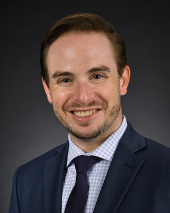No Burp Syndrome
Retrograde Cricopharyngeus Dysfunction (RCPD)
The Texas Voice Performance Institute at UTHealth Houston provides comprehensive care for patients experiencing “no-burp syndrome,” formally known as Retrograde Cricopharyngeus Dysfunction (RCPD). RCPD is a relatively uncommon condition in which affected patients are unable to burp. For the majority of these patients, symptoms have usually been present for as long as they can remember.
Symptoms
Aside from the principal symptom of an inability to burp, RCPD patients will often suffer from these additional complaints:
- Gurgling noises from the throat or neck, often uncontrollable, and audible to others
- Uncomfortable pressure sensations in the chest or neck
- Abdominal bloating
- Excessive flatulence
Many RCPD patients struggle with social interaction because of these symptoms, and will often have to carefully watch what they eat or drink to avoid worsening their symptoms, like carbonated beverages and beer.
Diagnosis and office-based care
Treatment
FAQ
Patient Success Story
Treating Retrograde Cricopharyngeal Dysfunction, AKA No-Burp Syndrome
For as long as she can remember, Taylor Frazier, 26, had no ability to burp. Her mother remembers burping her as a baby, and at some point in her early teens, she started noticing bubbling and gurgling sounds in her chest.
“It was never an issue for me until I was 22 and started having really terrible abdominal pains after eating a substantial amount of any type of food. Sometimes the pains came at random,” Frazier says. “I had a lot of flatulence and abdominal bloating to the point that it looked like I was pregnant. On occasion I had chest pain and some pretty painful hiccups.”
Meet the Physician

Andrew G. Tritter, MD
UT Physicians Otorhinolaryngology - Texas Medical Center
Houston, TX, 77030-1539



